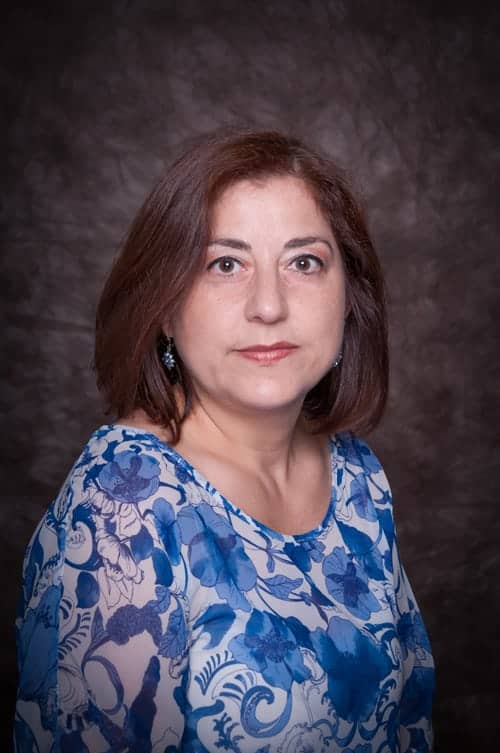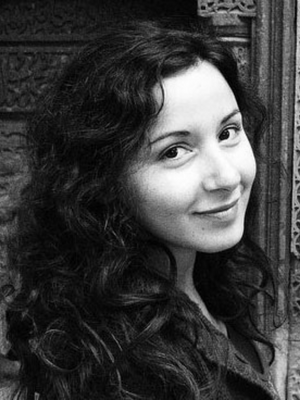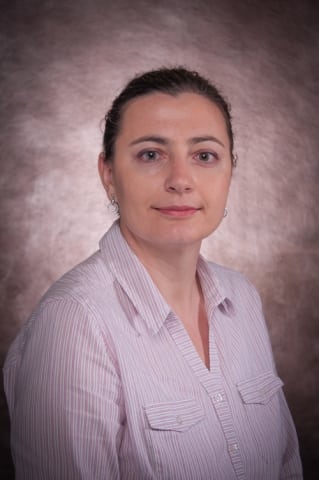English Language and Literature
(BA, 4 Years) - E-Learning/Distance Learning (Online)
Duration
4 years
Qualification Awarded
Bachelor of Arts in English Language and Literature
Level of Qualification
Bachelor Degree (1st Cycle)
Language of Instruction
English
Mode of Study
E-Learning/Distance Learning (Online)
Minimum ECTs Credits
240
No enrolments for current semester
English Language and Literature (BA, 4 Years) – E-Learning/Distance Learning (Online)
| Duration | 4 years |
| Qualification Awarded | Bachelor of Arts in English Language and Literature |
| Level of Qualification | Bachelor Degree (1st Cycle) |
| Language of Instruction | English |
| Mode of Study | E-Learning/Distance Learning (Online) |
| Minimum ECTS Credits | 240 |
No enrollment for the current semester
Request Information
Profile of the Programme
The BA programme in English Language and Literature aims to furnish successful students with comprehensive knowledge and skills relevant to such a double major, and to help them achieve their specialisation in Linguistics and TEFL (Teaching English as a Foreign Language) or in Literature. The programme therefore concentrates on three core areas: (a) Linguistics, by offering a comprehensive study of how language in general, and English in particular, actually works, (b) TEFL, by offering theoretical and practical courses in TEFL to allow students to pursue careers in teaching English, and (c) English Literature, by covering the great authors and issues from 1580 to the present day and by offering a detailed study of all genres: poetry, drama, and prose.
In addition to the knowledge and skills specific to the fields of English Language and Literature, the programme also aims to equip students with the necessary skills to undertake autonomous learning, to do independent research, and to use technology in appropriate and effective ways.
The courses of the literature component are designed to give a student an overview of developments within English Literature from the Early Modern Period to today. Through this chronological framework, the programme introduces students to many of the major figures and movements within English Literature and to the social and historical conditions under which works of literature were created.
Students are introduced to critical and theoretical texts and debates which surround the primary texts of the courses, thereby being allowed to place their own interpretations within a proper academic context and to understand the developments in critical thinking surrounding a text and within critical theory in general. This is achieved through the following required and concentration literature courses: Introduction to Fiction, Introduction to Drama, Introduction to Poetry, Shakespeare, Twentieth Century American Literature, Romantic and Victorian Poetry, Contemporary Literature, Gender in Literature, America in Literature and Film, Modernism/Postmodernism, World Literature in English, The Victorian Novel, Children Literature, Literary Theory and Criticism, Shakespeare on Stage and Film, Literature in Teaching, Memoir and Life-writing, and Authors in Context.
The courses of the linguistics component aim to provide the student with a thorough grounding of the principles underpinning the study of language, the diversity of linguistic study, and the social, pedagogical and cultural applications of such a study. Students therefore gain the ability to describe the language accurately in terms of its form and to account for its functions in real contexts of use, spoken and written, literary and non-literary. These aims are approached through the following required and concentration linguistic courses: The Science of Linguistics, General Linguistics, Applied Linguistics, Pedagogical Grammar, English Phonetics and Phonology, Intercultural Communication, English Morphology and Syntax, Semantics and Pragmatics, Sociolinguistics, Language and Identity, Discourse Analysis and Conversation, Psycholinguistics, and Historical Linguistics.
Finally, the courses of the TEFL component aim to provide students with the knowledge and skills relevant to the teaching of English as a foreign/second language. Students also gain practical experience by delivering lessons to groups of learners and learn how to integrate technology into the foreign language classroom. The required and concentration TEFL courses are therefore: TEFL I and II, Teacher Development in TEFL I and II, Computer Aided Language Learning (CALL), Practicum, Course Design and Evaluation in EFL, and Bi/Multilingual Education (CLIL).
These three main elements of the programme combine to give the student a thorough grounding in English Language and Literature and to develop within them a high level of competence in spoken and written English. These objectives are reinforced by courses in Research Methods, Sociology, Psychology, Ethics, Philosophy, World History and others most of which are offered as electives. In order to also enhance the career prospects and Europe-wide mobility of students, as well as giving them valuable practical experience of learning a foreign language, the core courses are supported by the study of two modern languages.
Overall, the programme aims to equip the students with the necessary knowledge and skills necessary for employment in fields associated with literature or linguistics/TEFL.”
Career Prospects
The BA in English Language and Literature gives students the potential to pursue many career opportunities. These opportunities include:
- Teaching English as a Foreign Language
- Teaching English Literature
- The Media
The skills gained through the degree open up possibilities in many areas of the media and communications, including journalism, publishing, advertising, administration and PR.
Moreover, the nature of the programme and skills acquired are highly transferable to many apparently unrelated career opportunities. Students will have a high level of competence in English, the ability to analyse and assimilate data, conduct independent research, compile detailed reports, and formulate coherent, logical arguments; skills which many employers find attractive. Graduates from such programmes have found employment in areas such as the academia, arts administration, the law, the media, management, research and writing, politics and public relations, social work and social administration, librarianship and information services.
Access to Further Studies
Graduates of the programme can be accepted into Second Cycle degrees (Master’s Degree).
The minimum admission requirement to an undergraduate programme of study is a recognized High School Leaving Certificate (HSLC) or equivalent internationally recognized qualification(s). Students with a lower HSLC grade than 7.5/10 or 15/20 or equivalent depending on the grading system of the country issuing the HSLC are provided with extra academic guidance and monitoring during the first year of their studies.
English Language Proficiency
The list below provides the minimum English Language Requirements (ELR) for enrollment to the programme of study. Students who do not possess any of the qualifications or stipulated grades listed below and hold IELTS with 4.5 and above, are required to take UNIC’s NEPTON English Placement Test (with no charge) and will receive English Language support classes, if and as needed, from UNIC’s International Gateway Centre (IGC).
- TOEFL – 525 and above
- Computer-based TOEFL – 193 and above
- Internet-based TOEFL – 80 and above
- IELTS – 6 and above
- Cambridge Exams [First Certificate] – B and above
- Cambridge Exams [Proficiency Certificate – C and above
- GCSE English Language “O” Level – C and above
- Michigan Examination of Proficiency in English (CaMLA) – Pass
- Pearson PTE General – Level 3 and above
- KPG (The Greek Foreign Language Examinations for the State Certificate of Language Proficiency) – Level B2 and above
- Anglia – Level B2 and above
- IEB Advances Programme English – Pass
- Examination for the Certificate of Proficiency in English (ECPE) Michigan Language Assessment by: Cambridge Assessment English & University of Michigan – 650 average score for ALL skills and above
Course assessment usually comprises of a comprehensive final exam and continuous assessment. Continuous assessment can include amongst others, midterms, projects, and class participation. Letter grades are calculated based on the weight of the final exam and the continuous assessment and the actual numerical marks obtained in these two assessment components. Based on the course grades the student’s semester grade point average (GPA) and cumulative point average (CPA) are calculated.
The student must complete 240 ECTS and all programme requirements. A minimum cumulative grade point average (CPA) of 2.0 is required. Thus, although a ‘D-‘ is a PASS grade, in order to achieve a CPA of 2.0 an average grade of ‘C’ is required.
On completion of this programme, students will be able to:
- Interpret literary texts in English from the Early Modern to the contemporary eras.
- Discuss orally and in writing the traditions of, and innovations in, the genres of fiction, poetry and drama, and independently research areas of literary study.
- Formulate interpretations of literary texts in coherent essays, assignments and research projects.
- Assess literary theory and apply such theories to an understanding of texts.
- Critically discuss the major movements and developments within English and Anglophone literature from 1580 to the present day.
- Interprete and anlalyse linguistic data and theory in all of the core areas of linguistics: phonetics, phonology, grammar, morphology, syntax, semantics, pragmatics, discourse, sociolinguistics and psycholinguistics.
- Apply knowledge of linguistic data analysis and theory by critically discussing and evaluating traditional and current research in linguistics and TEFL.
- Critically evaluate main linguistic, sociolinguistic, cultural and pedagogic issues that are to be taken into account in teaching English as a foreign language (TEFL) and relate inputs to their own contexts of professional practice.
- Demonstrate a deep understanding of current theory and practice in second language teaching and learning approaches and methods.
- Effectively communicate findings in linguistic analyses and research by writing research proposals, academic papers, research reports and scientific article reviews.
- Deliver lessons to groups of language learners, reflect on and analyse teaching performance, and test theory against practice.
| Course Code | Course Title | ECTS Credits |
|---|---|---|
| LALI-120DL | Introduction to Fiction | 6 |
| LALI-130DL | Introduction to Drama | 6 |
| LALI-135DL | Literature Criticism | 6 |
| LALI-140DL | The Science of Linguistics | 6 |
| LALI-141DL | General Linguistics | 6 |
| LALI-148DL | Teaching English as a Foreign Language I | 6 |
| LALI-150DL | Introduction to Poetry | 6 |
| LALI-155DL | Shakespeare | 6 |
| LALI-160DL | Pedagogical Grammar | 6 |
| LALI-200DL | Modern and Contemporary American Literature | 6 |
| LALI-240DL | Applied Linguistics | 6 |
| LALI-261DL | English Morphology and Syntax | 6 |
| LALI-272DL | Gender in Literature | 6 |
| LALI-280DL | English Phonetics and Phonology | 6 |
| LALI-295DL | Research Methods in Linguistics and EFL | 6 |
| LALI-303DL | Modernism / Postmodernism | 6 |
| LALI-310DL | World Literature in English | 6 |
| LALI-320DL | The Victorian Novel | 6 |
| LALI-350DL | The English Poem | 6 |
| LALI-362DL | Semantics and Pragmatics | 6 |
| LALI-370DL | Sociolinguistics | 6 |
| LALI-385DL | Literary Theory and Criticism | 6 |
| LALI-400DL | Contemporary English Literature | 6 |
| LALI-460DL | Translating I | 6 |
| LALI-490DL | Psycholinguistics | 6 |
| Course Code | Course Title | ECTS Credits |
|---|---|---|
| LALI-495DL | Research Project | 6 |
| LALI-498DL | Practicum | 6 |
| Course Code | Course Title | ECTS Credits |
|---|---|---|
| LALI-175DL | Intercultural Communication | 6 |
| LALI-248DL | Teaching English as a Foreign Language II | 6 |
| LALI-274DL | Computer Aided Lang. Learning | 6 |
| LALI-322DL | Course Design and Evaluation in TEFL | 6 |
| LALI-372DL | Language and Identity | 6 |
| LALI-375DL | Bi/Multilingual Education (CLIL) | 6 |
| LALI-377DL | Teacher Development in TEFL I | 6 |
| LALI-461DL | Translating II | 6 |
| LALI-483DL | Discourse Analysis and Conversation | 6 |
| LALI-486DL | Teacher Development in TEFL II | 6 |
| LALI-491DL | Historical Linguistics | 6 |
| Course Code | Course Title | ECTS Credits |
|---|---|---|
| LALI-235DL | Romantic and Victorian Poetry | 6 |
| LALI-302DL | America in Literature and Film | 6 |
| LALI-330DL | Modern Drama | 6 |
| LALI-335DL | Childrens Literature | 6 |
| LALI-380DL | Intertextuality and Literary Relations | 6 |
| LALI-382DL | Case Studies in Literature | 6 |
| LALI-442DL | Literature in Teaching | 6 |
| LALI-471DL | Memoir and Life-Writing | 6 |
| LALI-480DL | Creative Writing | 6 |
| LALI-482DL | Authors in Context | 6 |
| Course Code | Course Title | ECTS Credits |
|---|---|---|
| FREN-101DL | French Language and Culture I | 6 |
| FREN-102DL | French Language and Culture II | 6 |
| FREN-201DL | French Language and Culture III | 6 |
| GERM-101DL | German Language and Culture I | 6 |
| GERM-102DL | German Language and Culture II | 6 |
| GERM-201DL | German Language and Culture III | 6 |
| GREK-101DL | Greek Language and Culture I | 6 |
| GREK-102DL | Greek Language and Culture II | 6 |
| ITAL-101DL | Italian Language and Culture I | 6 |
| ITAL-102DL | Italian Language and Culture II | 6 |
| ITAL-201DL | Italian Language and Culture III | 6 |
| RUS-101DL | Russian Language and Culture I | 6 |
| RUS-102DL | Russian Language and Culture II | 6 |
| RUS-201DL | Russian Language and Culture III | 6 |
| Course Code | Course Title | ECTS Credits |
|---|---|---|
| BADM-332DL | Technical Writing and Research | 6 |
| COMM-200DL | Business and Professional Communication | 6 |
| COMM-300DL | Group Discussion and Communication | 6 |
| ENGL-101DL | English Composition | 6 |
| Course Code | Course Title | ECTS Credits |
|---|---|---|
| ANTH-105DL | Cultural Anthropology | 6 |
| COMM-441DL | Media and Cultural Theory | 6 |
| EUS-103DL | Modern European History and Politics | 6 |
| HIST-202DL | World History Since 1500 | 6 |
| PHIL-101DL | Introduction to Philosophy | 6 |
| PHIL-120DL | Ethics | 6 |
| PSY-110DL | General Psychology I | 6 |
| PSY-111DL | General Psychology II | 6 |
| PSY-210DL | Social Psychology | 6 |
| SOC-101DL | Principles of Sociology | 6 |
| Course Code | Course Title | ECTS Credits |
|---|---|---|
| COMP-150DL | Microcomputer Applications | 6 |
| COMP-151DL | Computer Fundamentals | 6 |
| MATH-221DL | Statistics I | 6 |
| MULT-160DL | Introduction to Multimedia | 6 |
Semester 1
| Course ID | Course Title | ECTS Credits |
|---|---|---|
| LALI-120DL | Introduction to Fiction | 6 |
| LALI-135DL | Literature Criticism | 6 |
| LALI-140DL | The Science of Linguistics | 6 |
| ENGL-101DL | English Composition | 6 |
| ITAL-101DL | Italian Language and Culture I | 6 |
Semester 2
| Course ID | Course Title | ECTS Credits |
|---|---|---|
| LALI-130DL | Introduction to Drama | 6 |
| LALI-150DL | Introduction to Poetry | 6 |
| LALI-141DL | General Linguistics | 6 |
| ITAL-102DL | Italian Language and Culture II | 6 |
| COMP-150DL | Microcomputer Applications | 6 |
Semester 3
| Course ID | Course Title | ECTS Credits |
|---|---|---|
| LALI-160DL | Pedagogical Grammar | 6 |
| LALI-155DL | Shakespeare | 6 |
| LALI-280DL | English Phonetics and Phonology | 6 |
| LALI-295DL | Research Methods in Linguistics and EFL | 6 |
| MULT-160DL | Introduction to Multimedia | 6 |
Semester 4
| Course ID | Course Title | ECTS Credits |
|---|---|---|
| LALI-320DL | The Victorian Novel | 6 |
| LALI-148DL | Teaching English as a Foreign Language I | 6 |
| LALI-261DL | English Morphology and Syntax | 6 |
| LALI-335DL | Childrens Literature | 6 |
| COMM-200DL | Business and Professional Communication | 6 |
Semester 5
| Course ID | Course Title | ECTS Credits |
|---|---|---|
| LALI-240DL | Applied Linguistics | 6 |
| LALI-272DL | Gender in Literature | 6 |
| LALI-362 | Semantics and Pragmatics | 6 |
| LALI-350DL | The English Poem | 6 |
| PHIL-101DL | Introduction to Philosophy | 6 |
Semester 6
| Course ID | Course Title | ECTS Credits |
|---|---|---|
| LALI-385DL | Literary Theory and Criticism | 6 |
| LALI-310 | World Literature in English | 6 |
| LALI-370DL | Sociolinguistics | 6 |
| LALI-482DL | Authors in Context | 6 |
| PSY-110DL | General Psychology I | 6 |
Semester 7
| Course ID | Course Title | ECTS Credits |
|---|---|---|
| LALI-200DL | Modern and Contemporary American Literature | 6 |
| LALI-460DL | Translating I | 6 |
| LALI-490DL | Psycholinguistics | 6 |
| LALI-380DL | Intertextuality and Literary Relations | 6 |
| LALI-495DL | Research Project | 6 |
Semester 8
| Course ID | Course Title | ECTS Credits |
|---|---|---|
| LALI-303DL | Modernism / Postmodernism | 6 |
| LALI-400DL | Contemporary English Literature | 6 |
| LALI-442DL | Literature in Teaching | 6 |
| LALI-382DL | Case Studies in Literature | 6 |
| LALI-471DL | Memoir and Life-Writing | 6 |







